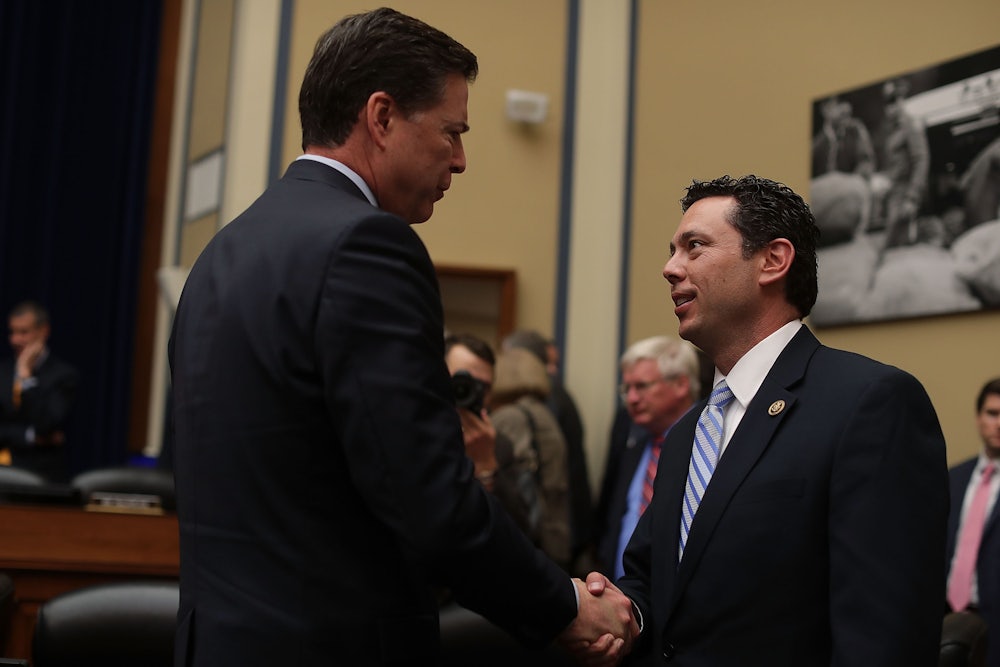Among other, potentially libelous aspects of Donald Trump’s morning broadside against the fired FBI director, the president retweeted this Fox & Friends segment featuring Chaffetz, the former chairman of the GOP oversight committee and newly cashed-out Fox News contributor.
.@jasoninthehouse: Comey went silent when I asked him about his memos, which raised a lot of eyebrows. pic.twitter.com/BfSPpUFeL5
— FOX & friends (@foxandfriends) July 10, 2017
“[The Comey Memos are] federal records,” Chaffetz complained. “No official can just give these documents out. And in the case of James Comey, what he testified to was he gave it to a friend who gave it to the media. You can’t do that, it’s against the law.”
These guys should have paid closer attention to Comey’s testimony. Here is how he described his actions, in response to multiple lines of inquiry.
First, to Maine Senator Susan Collins:
COLLINS: Finally, did you show copies of your memos to anyone outside of the Department of Justice?
COMEY: Yes.
COLLINS: And to whom did you show copies?
COMEY: I asked — the president tweeted on Friday after I got fired that I better hope there’s not tapes. I woke up in the middle of the night on Monday night because it didn’t dawn on me originally, that there might be corroboration for our conversation. There might a tape. My judgment was, I need to get that out into the public square. I asked a friend of mine to share the content of the memo with a reporter. Didn’t do it myself for a variety of reasons. I asked him to because I thought that might prompt the appointment of a special counsel. I asked a close friend to do it.
Then, to Missouri Senator Roy Blunt:
BLUNT: So you didn’t consider your memo or your sense of that conversation to be a government document. You considered it to be, somehow, your own personal document that you could share to the media as you wanted through a friend?
COMEY: Correct. I understood this to be my recollection recorded of my conversation with the president. As a private citizen, I thought it important to get it out.
BLUNT: Were all your memos that you recorded on classified or other memos that might be yours as a private citizen?
COMEY: I’m not following the question.
BLUNT: You said you used classified —
COMEY: Not the classified documents. Unclassified. I don’t have any of them anymore. I gave them to the special counsel. My view was that the content of those unclassified, memorialization of those conversations was my recollection recorded.
All italics are mine. I don’t claim to be an expert in federal records law, but Comey described his actions in characteristically precise terms, to make clear that he didn’t pass along property of the federal government to a friend. He described the leak of personal notes of his own recollections that happen to mirror, perhaps word for word, the content of the memos that belong to the Department of Justice.
My read of this is that when Comey wrote up his unclassified Trump memos, he pressed “select all” + “copy” and pasted those recollections into personal files—his own records of what happened. If there’s a federal statute that says a person’s unclassified memories are the express property of the U.S. government, I am not aware of it. I bet Chaffetz isn’t aware of it either. Trump certainly isn’t.
